How to Have More Energy After Work
Are you wondering how to not be tired at the end of every work day? When everyone’s heading out for happy hour or making plans to pursue fun hobbies, are you yawning and stretching, yearning for bed?
If you’re often canceling your after-work plans and seriously struggling through the afternoons, it’s a sign that you’re not in your top shape. But, there could be some easy ways to fix that without becoming caffeine-addicted (especially since that boost wears off way too quickly!).
Read on to find out why you might be so tired in the evening and how to have more energy after work.
Why Do I Always Feel Tired After Work?
First of all, if you’re not feeling energetic after work, you’re not alone! In fact, the Mayo Clinic tells us that “everyone is overtired or overworked from time to time” (1). However, we need to differentiate between being consistently tired after work and having more serious conditions. Here, we’re talking about work fatigue - which has a physical, mental and emotional impact on your wellbeing.
Here’s what may be causing that.
You’re Not Taking Enough Breaks
Especially since most of us have started to work from home a large percentage of the time, the absence of breaks is making a huge difference in energy levels. Moreover, for computer users, the extra stress on your eyes and mind from the continued exposure to blue light is also detrimental to your energy levels.
Too much blue light exposure can have harmful effects on your skin, too. This is why doctors are advising us to stop working on our computers for regular breaks throughout the day. From the Pomodoro technique to various other time trackers that fit breaks in, there are a range of ways to pause and disconnect. All these will help you refresh and recharge your mind, making you feel less tired overall.

Your Job is Stressful
There’s not much we can say about this: when you’re stressed out, dreading those meetings with your boss, or constantly feeling under siege, it will take its toll on you. Anxiety caused by work can contribute to poor sleep quality, which in turn can be linked to more anxiety (2). This is how you enter a vicious circle of mental exhaustion.
You Have a Poor Work-Life Balance
In the new post-pandemic work environment, many of us have blurred the lines between “the office” and our home life. This means that our routine has been thrown off, too. Gone are the natural boundaries of commuting to and from work, taking some time to go outside to get lunch, or even having water cooler chats with your coworkers.
This in itself has created a poorer work-life balance overall. Additionally, if you spend your time thinking about work after you’ve clocked off, and you find yourself allocating more and more time to work over your personal time, that’s going to make it even harder to relax. Ultimately, this can lead to sleep deprivation, poor diet, and more.

Your Job is Mentally or Physically Challenging
Either mentally or physically, your job can be impacting your energy levels. Those who are on their feet all day or having to do physically hard work such as construction, for example, are justified in feeling tired when they clock out.
Mentally taxing work, such as heavy research or writing in high-stress environments like law or in-house journalism, can also be really tiring. These workplaces tend to combine all the negative factors that affect energy levels: poor diet, lack of sleep, very little (if any) work-life balance, and a high volume of activity.
You’re Bored with Your Job
Sometimes, boredom can be mistaken for tiredness. In fact, boredom can appear as either lethargy (feeling tired) or agitation (feeling irritated) (3). So, if you’ve lost interest in your daily activities or find them unfulfilling, you’ll be unable to keep focused and feel increasingly lethargic at work.
You know how time feels longer when you’re bored? That’s why, after work, you’ll be feeling like you’ve been on the job for many more hours than you have. Because you’ll have been itching to leave somewhere that doesn’t interest you.
You’re Not Taking Care of Yourself
In addition to the lack of work-life balance we’ve described above, not having a good sleep and life hygiene overall can wreak havoc on your energy levels. This includes having a routine whereby you are consistent with your sleep schedule. If you find yourself typing up contracts into the night, then rushing out the door first thing in the morning, of course you’re not allowing your mind and your body to switch off and recharge properly.
Moreover, eating refined sugars, take-out food, and generally meals that are fast and easy but poor in nutritional value will impact your ability to support your lifestyle. In time, the lack of vitamins and minerals in your diet will have a negative effect on your energy levels.
Finally, general lack of self-care and attention to yourself can make you feel drained. Think of your body as any well-functioning machine: if you’re not fueling it well and maintaining it regularly, it breaks down in time. It’s the same with you: all those times you’re not making time for yourself send your brain the signal that you’re “always on” - and, therefore, tired.
You’re Consuming Too Much Caffeine or Sugar
Drinking coffee regularly may have the opposite effect to what you’re hoping to achieve. This is because of the way your body reacts to caffeine. Firstly, caffeine blocks the brain’s adenosine receptors.
Adenosine is a chemical in our central nervous system that regulates the sleep-wake cycle. It increases during the day (up to a point where it will make you drowsy) and then its levels drop at night. The caffeine from coffee doesn’t stop adenosine from being produced, but it keeps the receptors in the brain from binding to it. When the effect of coffee wears off, you’re therefore left with lots of adenosine in your body looking to bind to the receptors in the brain. This will then spike your fatigue levels.
Additionally, have you heard of sugar spikes and crashes? It’s normal that we reach for a sugary snack when we’re a little tired in the afternoon. We’ve got used to thinking it will perk us up. The body then processes this type of sugar really quickly (unlike complex carbohydrates, which give you energy for longer, at a steadier level). When the refined sugar has been used up, you’ll feel tired. And you may get on a vicious circle of reaching for more sugar or more caffeine… getting a quick fix, then feeling tired again!

How to Have More Energy After Work
If all this sounds bleak, relax! There are a few simple lifestyle changes that can help improve energy levels and help you find that excitement for after-work activities.
Leave Your Work at Work
This is key for your mental health and work-life balance. One simple exercise is to make a to-do list for the next day, before your day ends. This way, you take stock of what you’ve achieved in the day, giving yourself a pat on the back for the jobs you have done. You can also assess how realistic today’s list was - and how much less (or more!) you should strive to get done tomorrow.
Once you’ve put down on paper what tomorrow’s jobs need to be, you can confidently put them out of your mind. Your brain will classify them as next day’s preoccupations and free up space for you to enjoy your downtime.
Stay Hydrated
If you have no energy after work, you may have to rethink your fluid intake. One of the major side effects of dehydration is fatigue, and studies show that even mild dehydration (1 to 3% of body weight) can impair many aspects of brain function. If the idea of drinking water all day bores you, spice yours up with lemon or fruit for taste and extra nutrients. Or, opt for coconut water, which has antioxidants and supports your heart.
Prioritize Good Nutrition and Eat Regular Meals
To balance your energy levels throughout the day, skip unhealthy snacks and stop relying heavily on caffeine and refined sugar. Instead, give your body a constant drip of energy from highly nutritious foods that are slower burning and energizing at the same time.
Leafy greens such as spinach and kale are high in nutrients and rich sources of chlorophyll, which can boost your energy without piling on the calories. Not into salads? Pair your greens with berries and hemp for an energizing, plant-based smoothie. The best energy supplements also contain these greens (just be sure to check the label), as do superfood powders.
Pair your greens with complex carbohydrates instead of refined sugars so you have energy for longer. Additionally, cut down on your caffeine intake gradually (going cold turkey can make you feel horrible!) to just one or two cups a day. And watch the extras: syrups, creamers and other add-ons in your take-out coffees give you those refined sugars we know are not good for energy levels or blood sugar levels.
Head Outdoors and Get Your Body Moving
Exercising may be the last thing on your mind if your energy is zapped, but it actually can revive you. Exercising causes your body to release the hormones epinephrine and norepinephrine, both of which work to increase energy. Regular exercise also ensures you’ll sleep more soundly, giving you more energy to burn throughout the day. If you find it difficult to kickstart an active routine, go for brisk walks when you can, sign-up for a lunchtime yoga class or take the stairs instead of the elevator. See more ways to stay active without trying here.
Another beneficial approach to boosting your energy levels is cold therapy. In a study in Behavioral and Brain Functions, researchers found that cold water helps reduce the long-term exhaustion that characterizes chronic fatigue syndrome. When we take cold showers, our body releases endorphins, or what some may refer to as a “runner’s high.” If you’re more of a hot shower kind of person, keep in mind you don’t have to brave more than 30 to 90 seconds of the cold for it to work.
Take a Power Nap
For some people, power naps work for reducing fatigue and keeping their engines going throughout the work week. It’s not for everyone, but you can try a 20-minute power nap in between office time and after-hours for a boost of energy.
Even if you don’t fall asleep, simply closing your eyes and shutting out the world can create that natural barrier between work and after-work that helps your brain reset. It’s a great way to minimize stress from the day, too.

Minimize Your Exposure to Stress
We’ve seen that stress and anxiety lead to tiredness and fatigue, so if you find your new project is stressing you out or deadlines are leading you to feel anxious, speak to your manager or colleagues about what’s causing your stress. If adjusting your work to relieve any of these pressures is out of the question, or stress is happening outside of work, take up stress-busting activities such as yoga or mindfulness meditation.
Practice Mindfulness
Mindful practices like meditation and yoga have been shown to calm down a restless mind and help reduce the feeling of anxiety, stress and fatigue. But there are more ways to practice mindfulness than being in a studio or using a meditation app.
Going outside for a brief walk in the sunshine without your phone can be a game changer. You’ll be paying more attention to the world around you, switching your mind onto other things and helping you unwind. Another great way to practice mindfulness is to find an activity that lets you switch off and take in more of your surroundings. It doesn’t need to be as complicated as going fishing - reading a book or coloring in (there are some great coloring books for adults!) does a great job of unwinding and recharging the energy levels of your mind.
Make Sure You’re Getting Enough Sleep
Too many sleepless nights can take a toll on your energy levels, even if you typically try to catch up on the weekend. A study from the Journal of Clinical Endocrinology and Metabolism actually found that sleeping in on the weekends can disrupt your body's natural circadian rhythms, so aim to get 7 to 9 hours nightly—preferably not with your keyboard as the pillow. Follow these sleep tips to avoid hitting snooze and enjoy a restful sleep the whole night through. You might even make it to happy hour, though we bet you’ll feel happier all day long.
Try a Different Work Schedule
Not everyone functions at their best in the 9-to-5 setup. If that doesn’t work for you and you’re naturally an evening person, or if you prefer getting all your tasks done early in the morning and taking afternoons off, see if this level of flexibility can be achieved in your job.
Working in tune with your natural rhythm can make a huge difference to your energy levels. Many people also enjoy the solitude of certain work hours - whether that’s 5am to 8am when no one is online to bother you, or 10pm to midnight. We appreciate not everyone can do this, but if it’s an option for you, it’s worth experimenting with.
Wear Compression Socks
If you sit or stand in place all day, poor fluid circulation may be at fault for your low energy. Compression socks help maintain proper blood flow, as well as the flow of all fluid through the lymphatic system. When the lymphatic system is compromised, the result is whole-body fatigue and weakened immunity. One of the benefits of compression socks is that fluid in the legs circulates more efficiently, giving you more energy throughout your day.
And, if you have a hectic schedule and are running from work to the gym and then to after-work activities, compression socks can support your recovery from exercise. They’ll help your leg muscles recover faster while you catch up with your friends.
When to See Your Doctor
The symptoms and causes of fatigue we’ve covered here don’t take into account some more serious underlying causes. If you’re experiencing serious fatigue unlike anything you’ve encountered before, or if your energy levels have changed considerably and suddenly, you should check with your doctor and see if other aspects of your health need to be analyzed.
Staying Energetic All Day Long
Getting enough sleep is not the only way to stay energized. And, unfortunately, it might sometimes not even be the answer to why you feel tired after work. However, there are a few tips and tricks to make you look forward to the later hours of the day. Wearing your compression socks is just one of them - try and see which of our advice works best for you!
Browse our huge collection of stylish compression socks today!
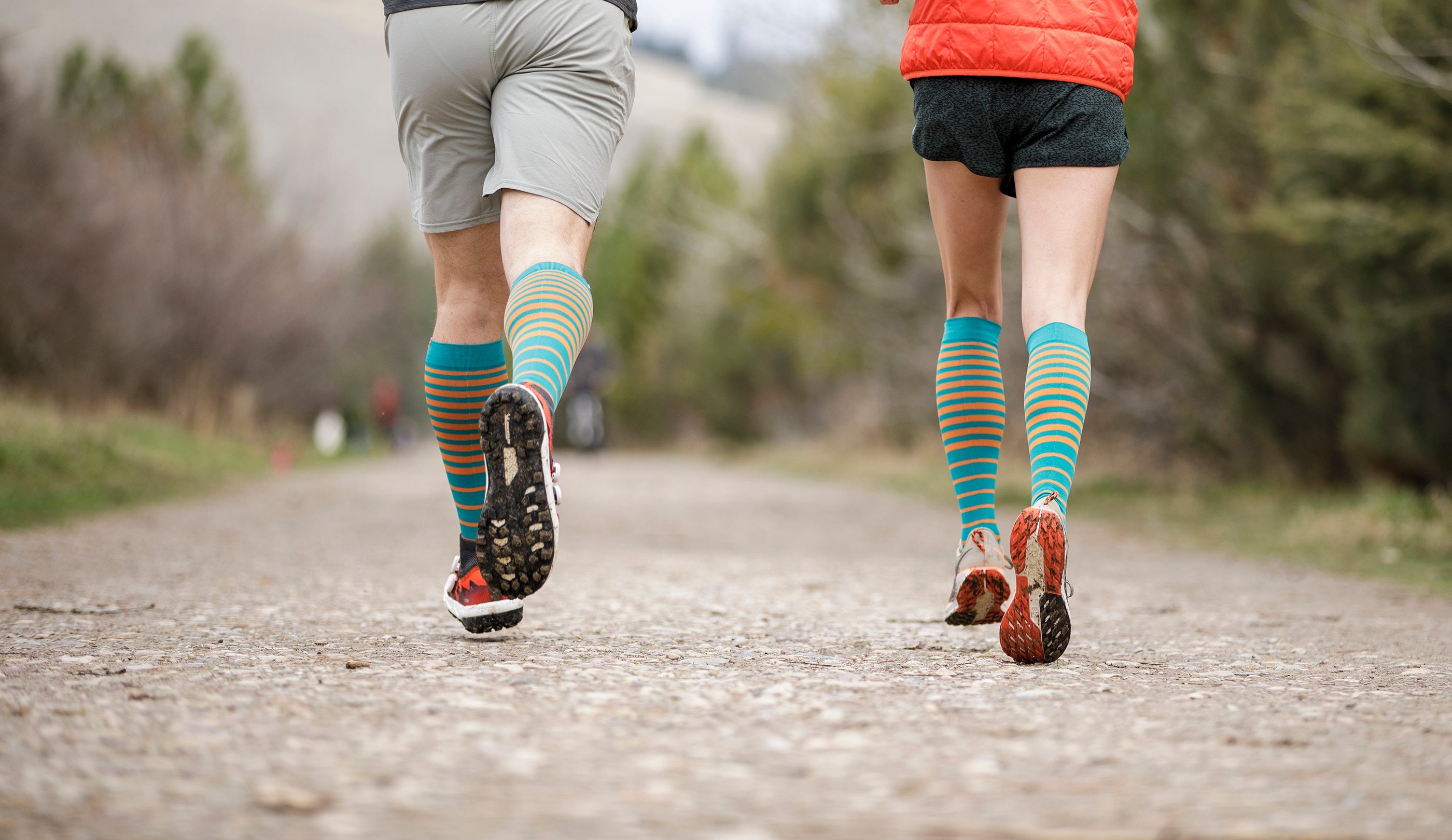
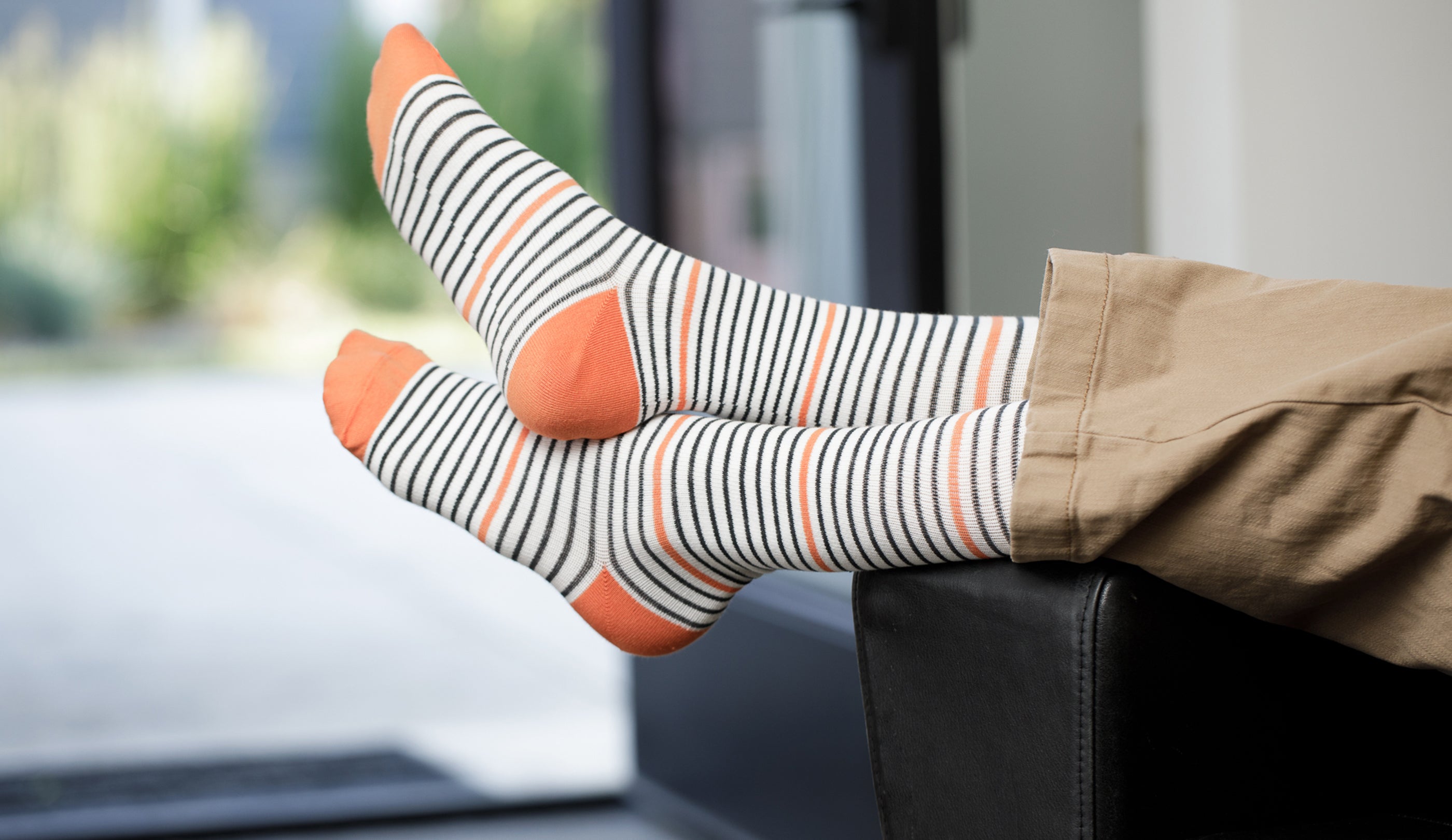
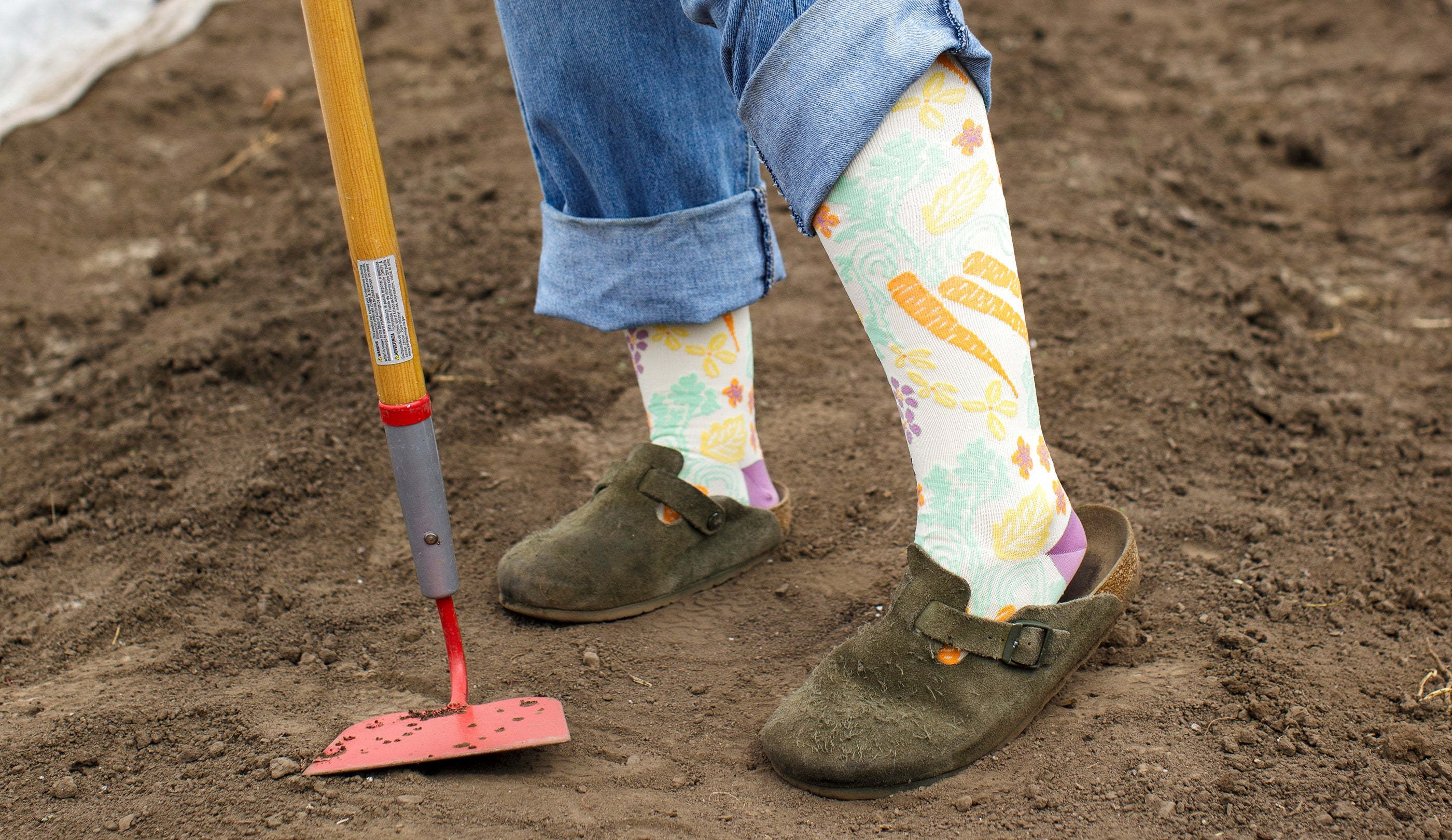
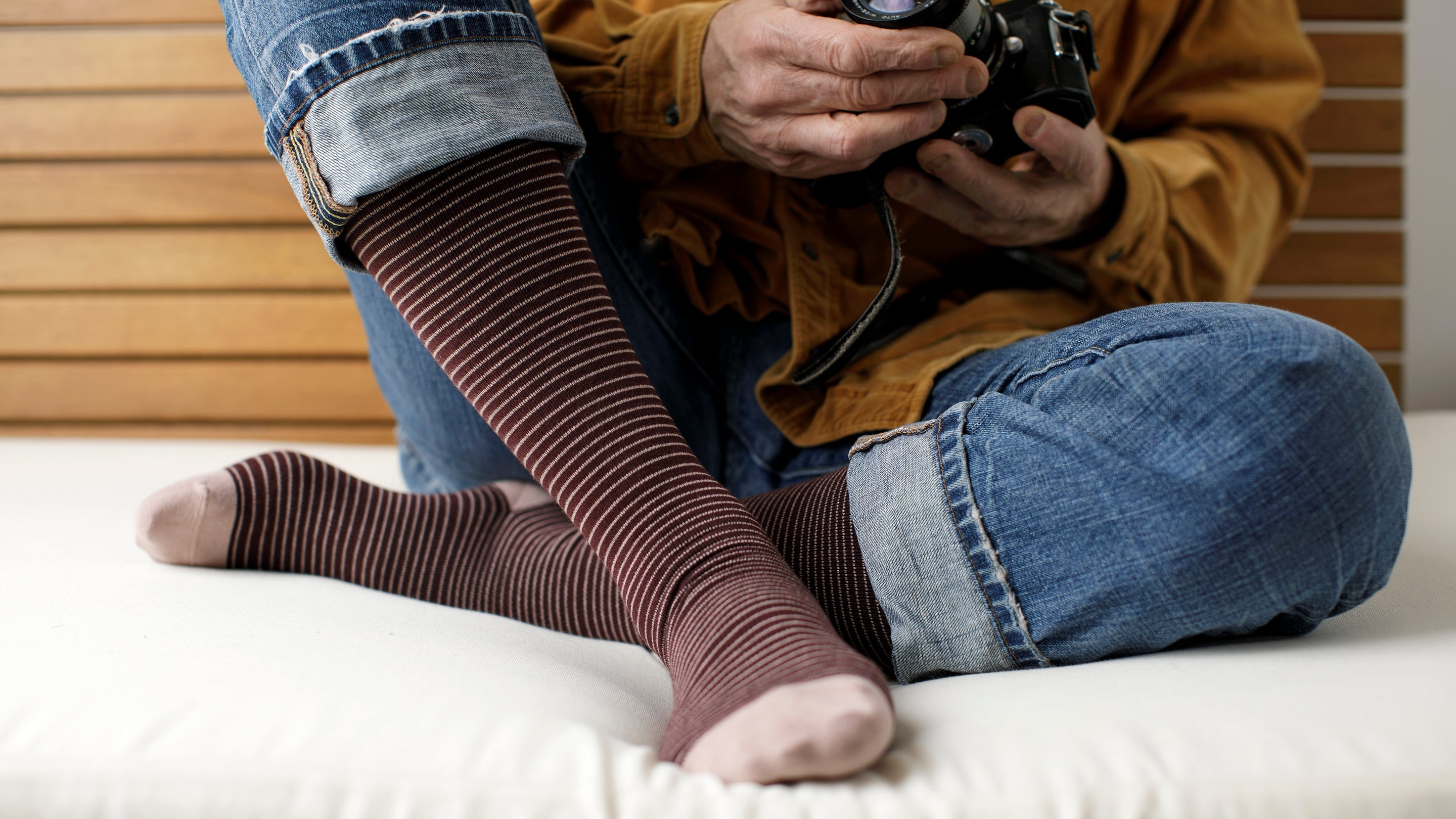
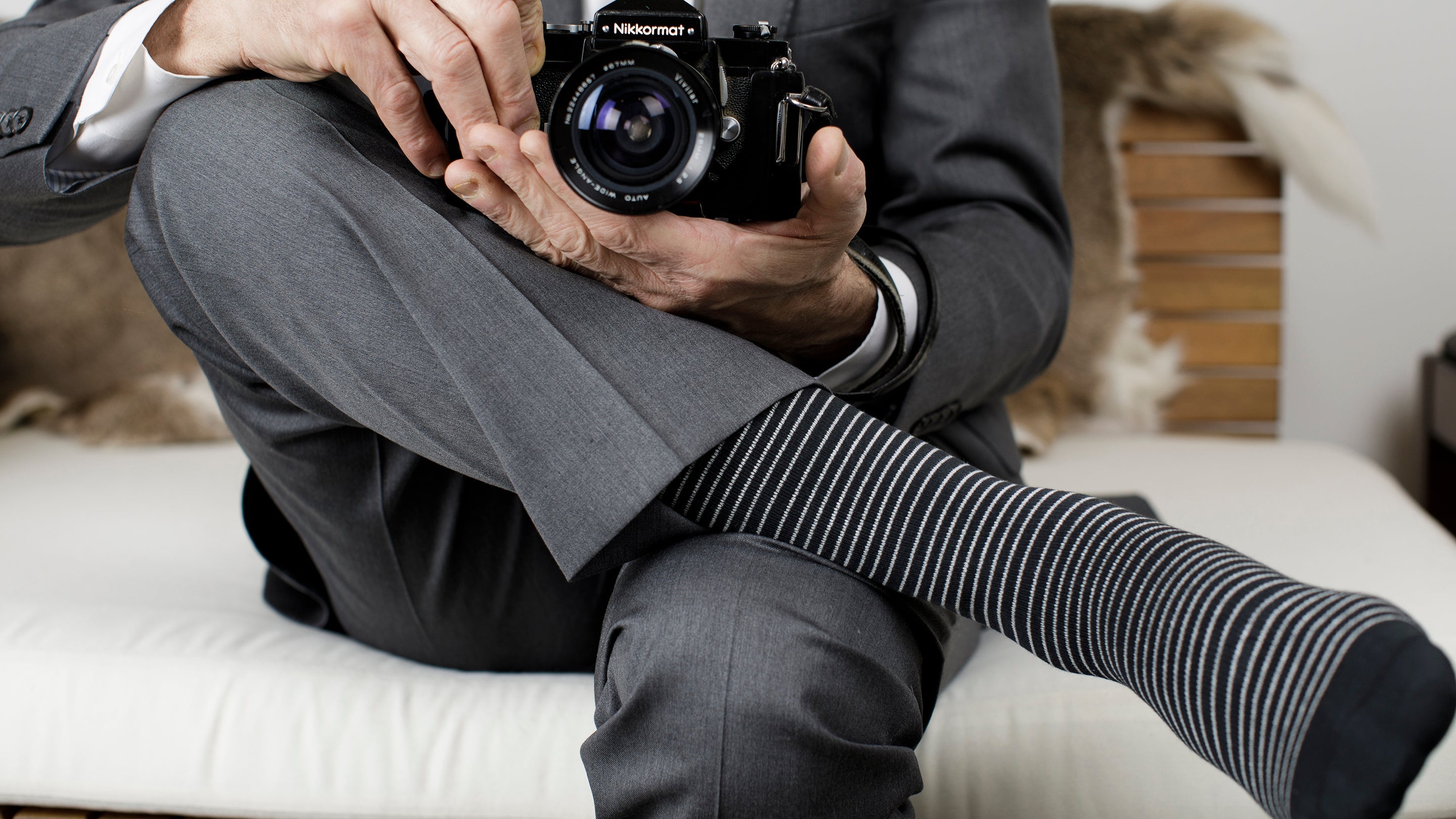



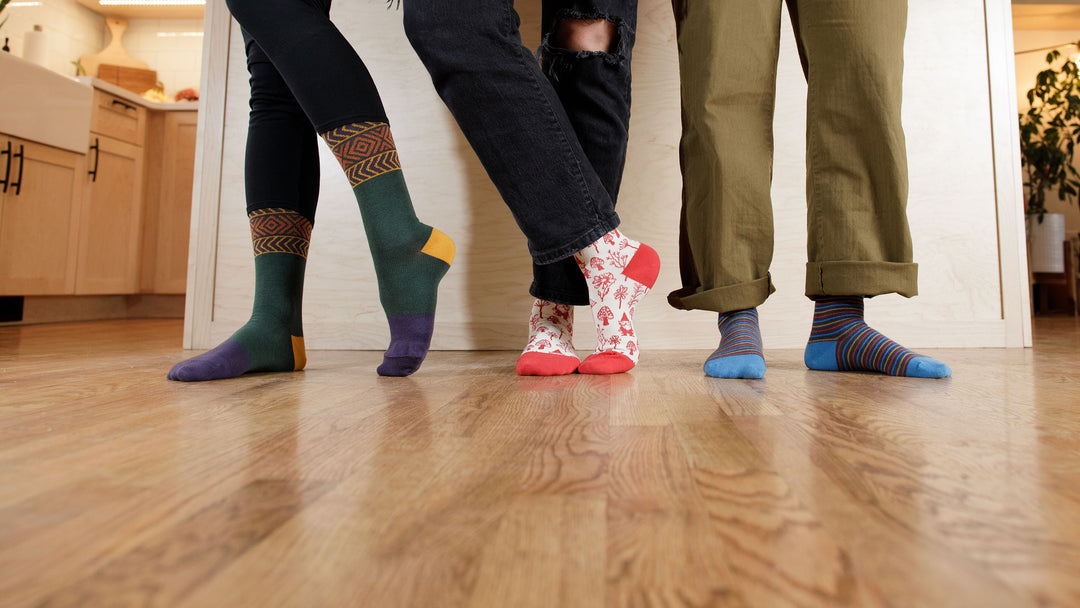


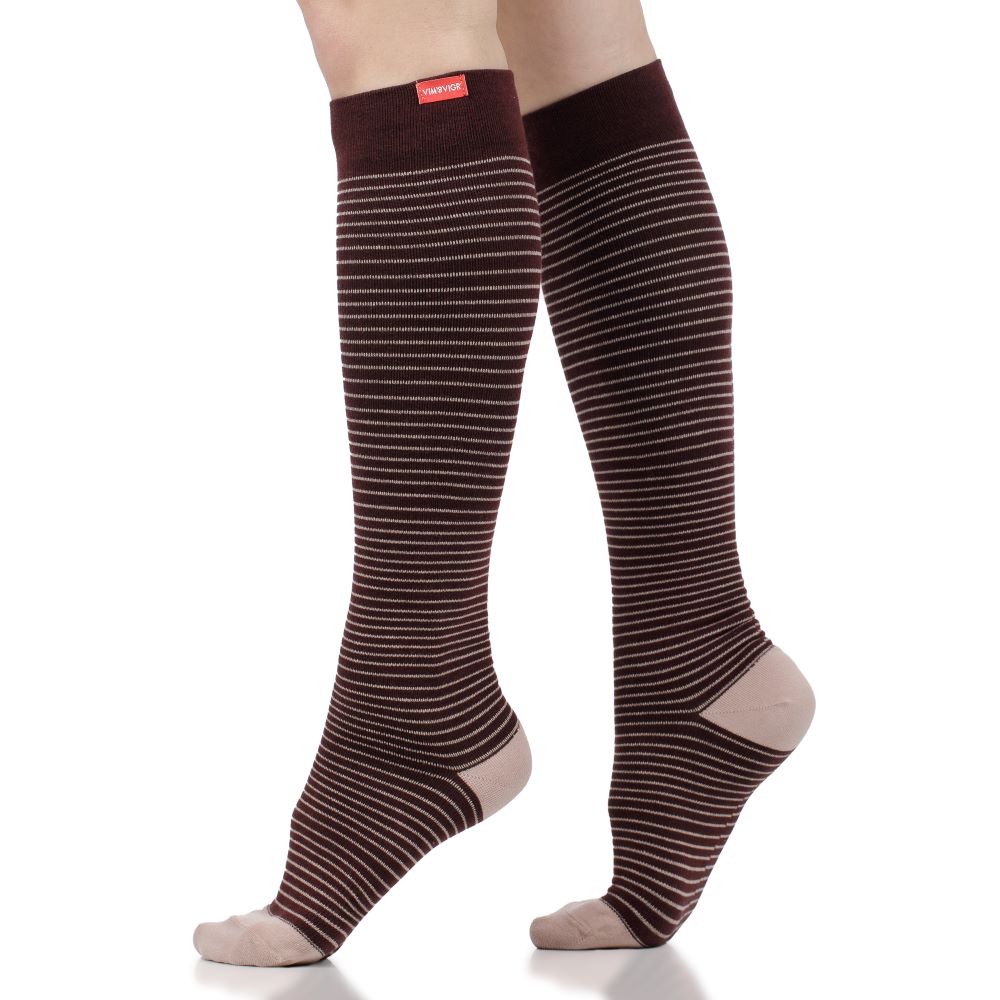
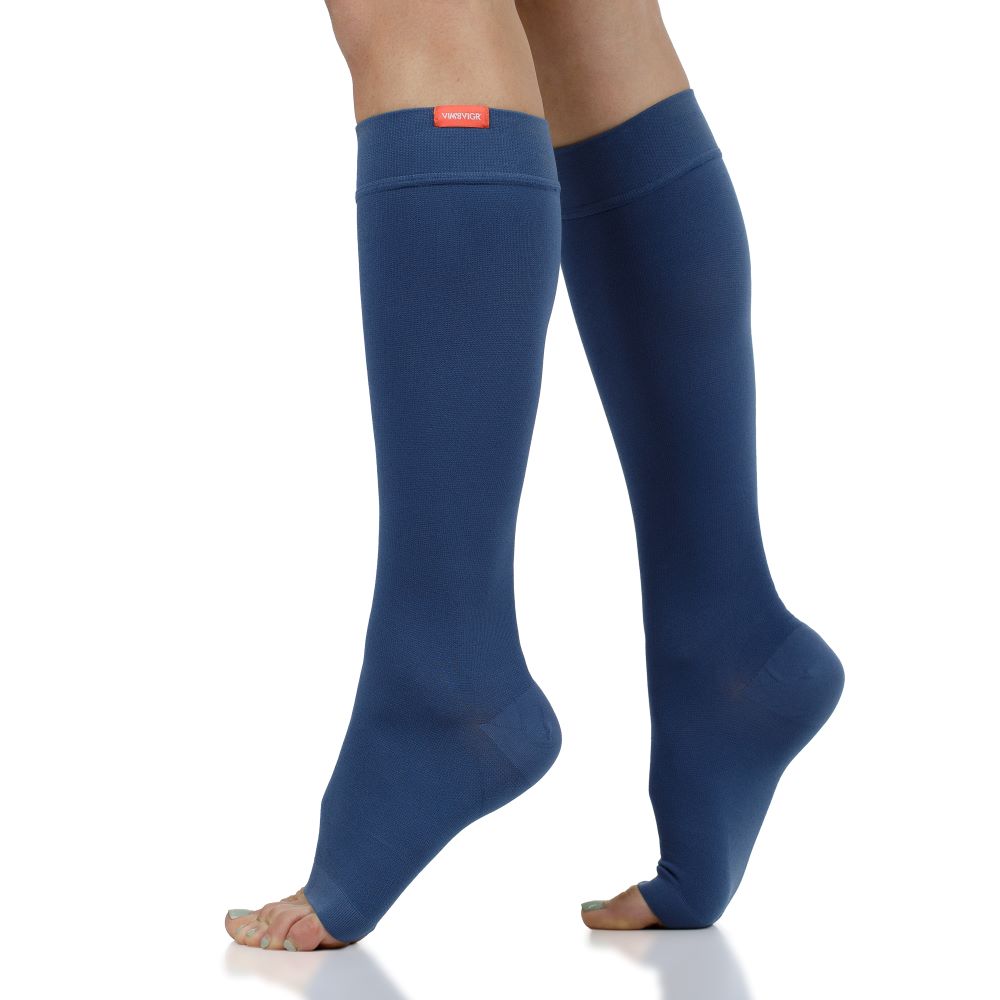



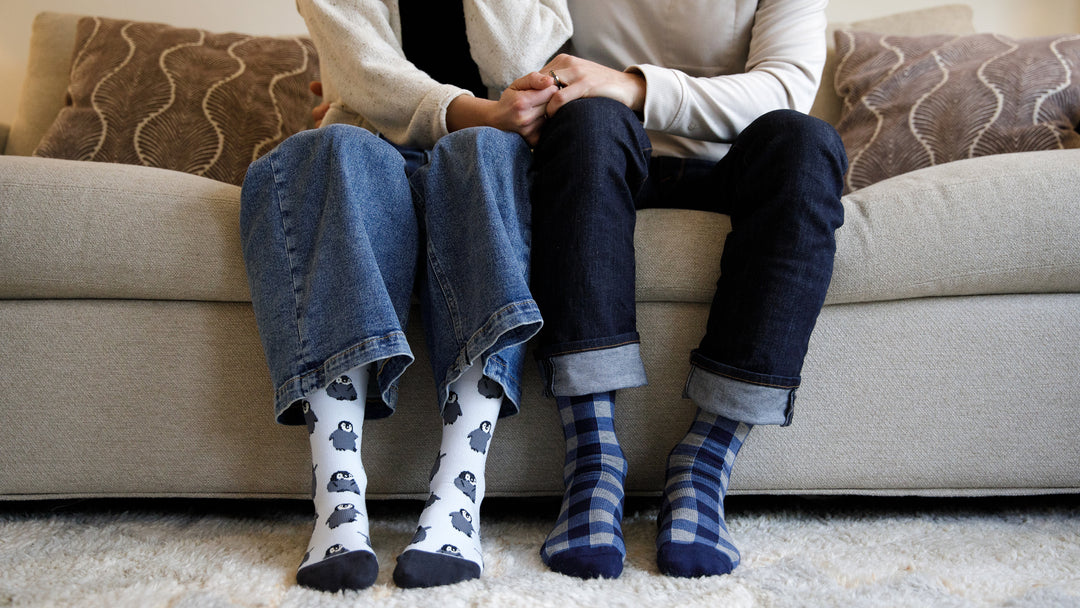
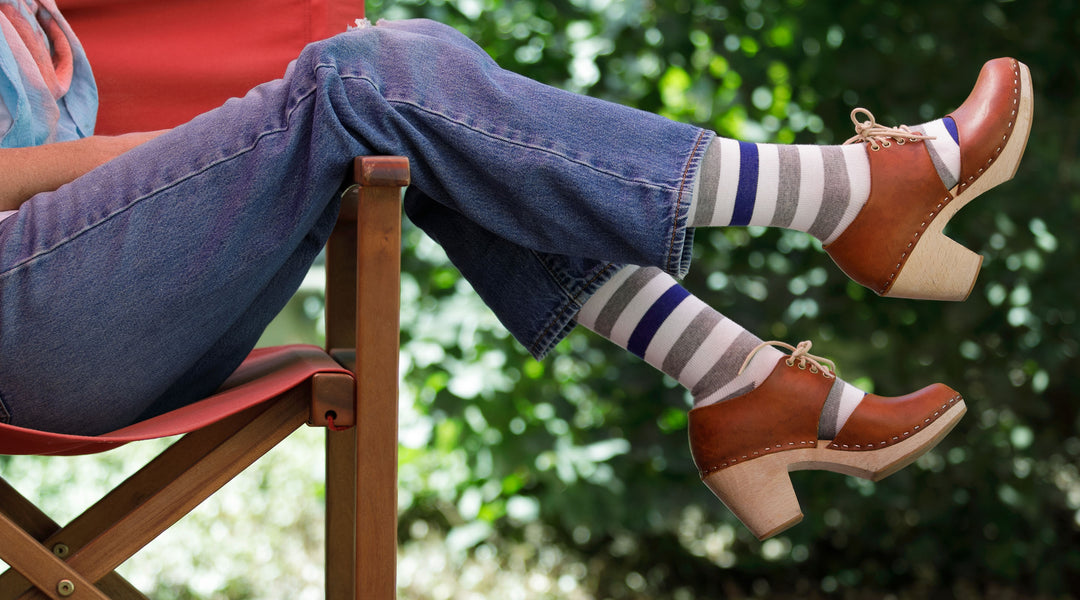
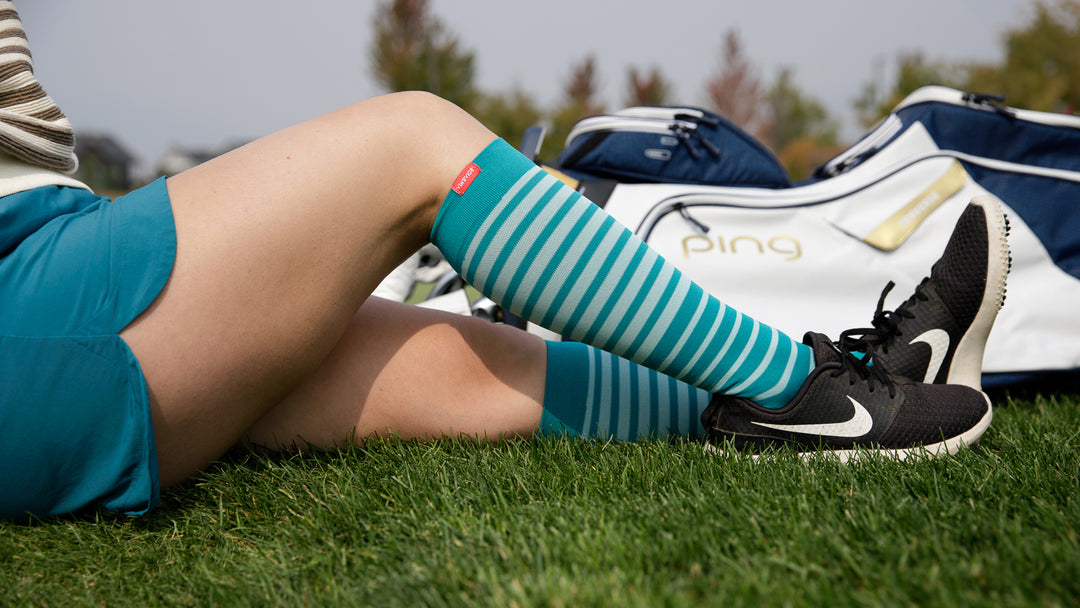
Leave a comment